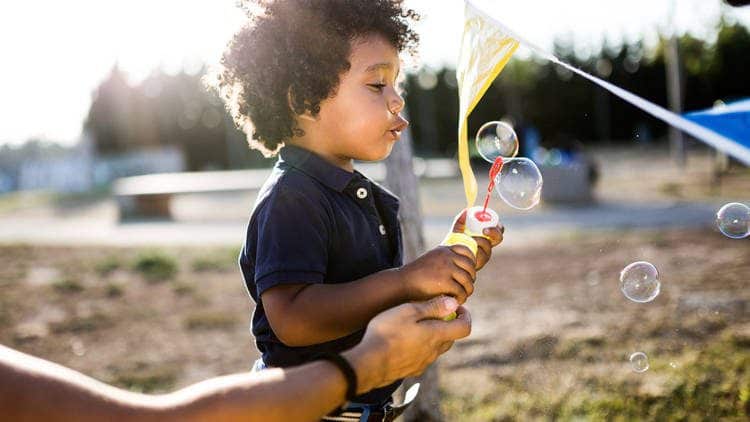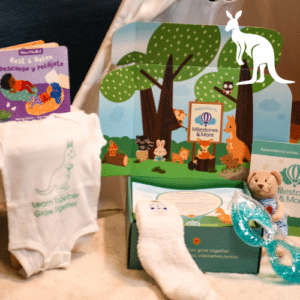Supporting Early Development, One Milestone at a Time
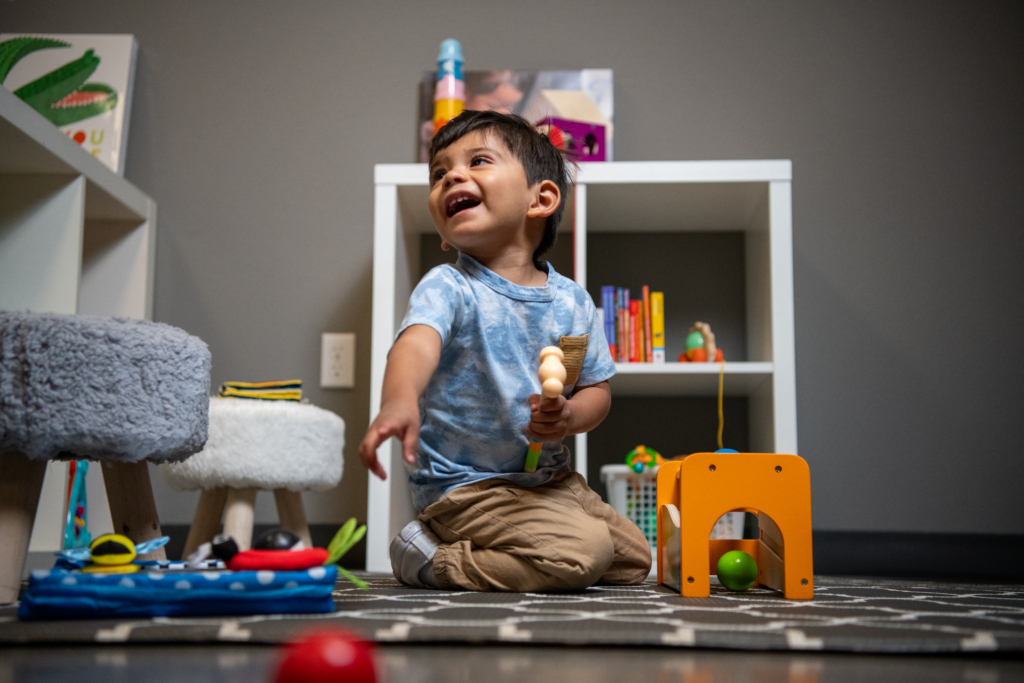
The first three years of life are filled with change, growth and everyday moments that shape a child’s future.
Whether you’re a parent, guardian, or early childhood professional, it can be overwhelming to keep track of all the ways babies and toddlers grow. Understanding developmental milestones helps you notice progress, recognize areas where a child might need support and celebrate all the little things that lead to big learning.
More than 1 million new neural connections form every second in the first few years of life. These connections build the foundation for lifelong learning, behavior, and health. Milestones give us a lens to see this growth in action and respond with care, connection, and confidence.
The Centers for Disease Control and Prevention (CDC) offers a helpful breakdown of developmental milestones by age. These milestones include key areas such as social-emotional skills, language and communication, movement and physical development and cognitive learning.
Here’s a look at how children grow in these early stages, and how milestone kits can help support that development in both home and professional settings.
Before Baby Arrives: Preparing for Connection
Even before birth, babies begin to recognize voices and respond to sounds. For expectant parents and caregivers, this is a time to reflect, prepare, and begin building a foundation for early bonding. Research shows that prenatal bonding and emotional well-being can positively influence infant development, including early attachment and stress regulation.
Supportive Tools May Include:
- Child development information and a cozy onesie to welcome baby
- Bilingual books to start early reading rituals
- Comforting plush toys
- Self-care items like fuzzy socks and a gel mask for the caregiver
0–6 Months: Building Trust and Awareness
During the first six months, babies begin to smile socially, respond to voices, track movement and explore the world with their hands and eyes. They may start to coo, show excitement, and turn toward sounds. By six months, most babies can recognize familiar faces and enjoy simple social games like peekaboo.
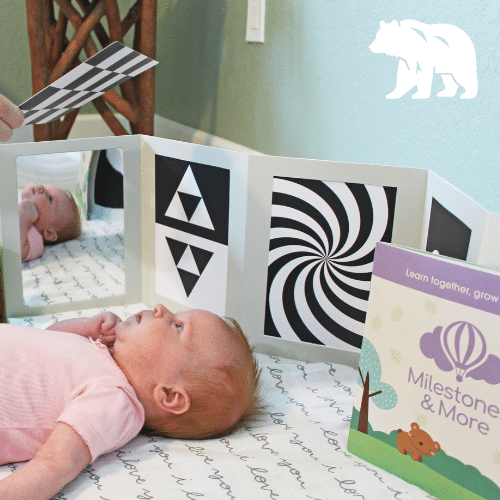
Helpful Support May Include:
- A swaddle blanket for comfort and regulation
- Activity cards that guide caregivers through responsive interaction
- A twisty teether for soothing sore gums
- Sensory toys that make tummy time more engaging
6–12 Months: Exploring Through Play
At this stage, babies are sitting up, babbling and starting to understand familiar words. The CDC notes milestones like making different sounds, looking for objects that fall, and enjoying peekaboo. According to the Harvard Center on the Developing Child, play supports the development of executive function and self-regulation, which begin to emerge in this stage.
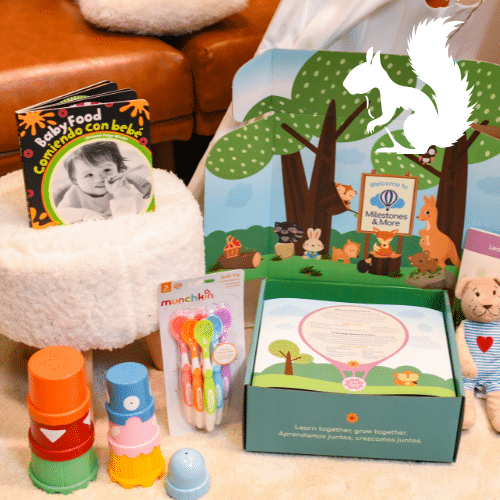
Helpful Support May Include:
- Colorful stacking cups to support hand-eye coordination
- Soft spoons for early feeding and independence
- Plush toys for emotional comfort
- Sturdy board books in English and Spanish

12–18 Months: Stepping into Toddlerhood
Children between 12 and 18 months often take their first steps, imitate others, and begin to use simple words. They may follow basic directions, express more emotions, and point to show interest. Studies show that early motor development is closely linked to later cognitive and language skills, making this an ideal time to support movement and communication together.
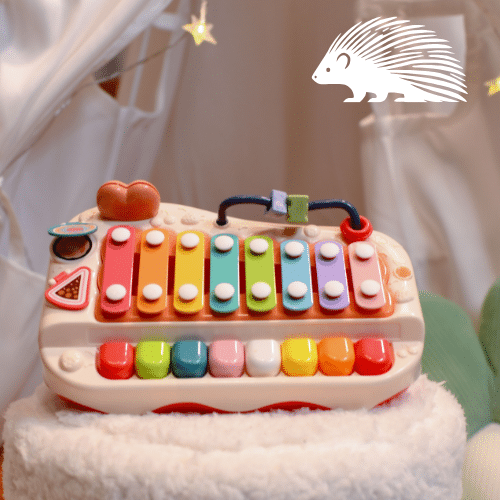
Helpful Support May Include:
- A musical toy for sensory development and expression
- Safety tools like door knob covers for a more toddler-friendly space
- Activity guides to encourage purposeful play
- Books that support early language development
18–24 Months: Growing Independence
Toddlers at this stage may say several words, show more emotion, and begin to play simple pretend games. They often walk steadily and explore their environment with intention. According to the CDC, most children at 24 months know at least 50 words and are starting to combine them into short phrases.
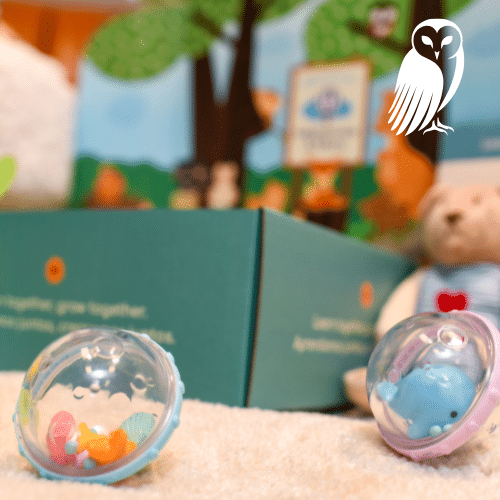
Helpful Support May Include:
- BPA-free bowls and soft-tip spoons for confident mealtimes
- Rattling balls for fun, active play
- Plush toys for comfort during transitions
- Bilingual books to build vocabulary
Our resources for families cover everything from managing challenging behaviors to building positive parenting skills.
24–30 Months: Expressing Big Feelings
Between 2 and 2.5 years old, children begin using two-word phrases, showing affection and playing alongside other children. They also may begin to exhibit more frequent challenging behaviors. Social and emotional development is key at this stage, and strong early relationships are the best predictors of healthy emotional growth.
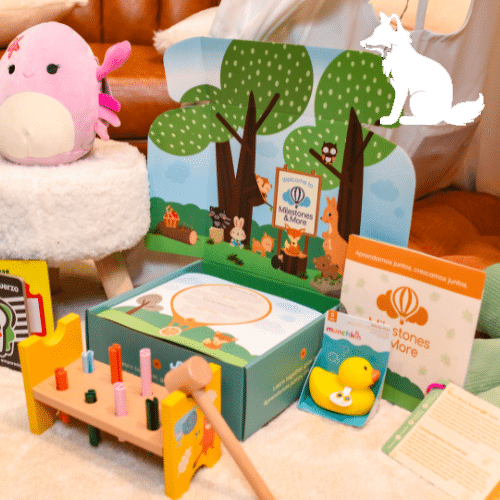
Helpful Support May Include:
- A hammer and block toy for fine motor skills and coordination
- A water safety duck that changes color with heat, making bath time both fun and safe
- Books that support connection and communication
30–36 Months: Making Sense of the World
By age three, toddlers often carry on brief conversations, understand basic time concepts and recognize shapes and colors. Most children at this stage can follow two- or three-step directions, and their imaginative play becomes more complex. Supporting early literacy and cognitive skills is especially important now.
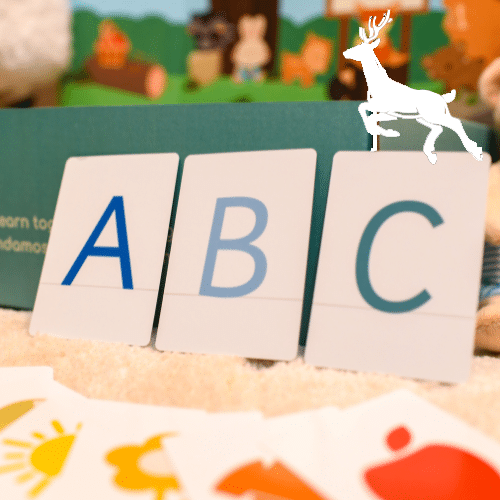
Helpful Support May Include:
- A veggie basket plush set for imaginative play and healthy habits
- Portable flash cards to support early literacy and number recognition
- Activity cards to turn everyday moments into learning opportunities
Concerned about meeting milestones? Learn more about early intervention.
As you explore these milestone kits and track developmental milestones by month, remember: milestones are guideposts, not deadlines.
Every child’s journey is unique, and there’s no “right” timeline for growth. What matters most isn’t whether a baby walks or talks first, but that they’re surrounded by patient, loving adults who support them along the way. Children thrive when they feel seen, safe and supported. Our milestone kits are tools to help you notice and celebrate progress, but the real magic lies in your presence.

